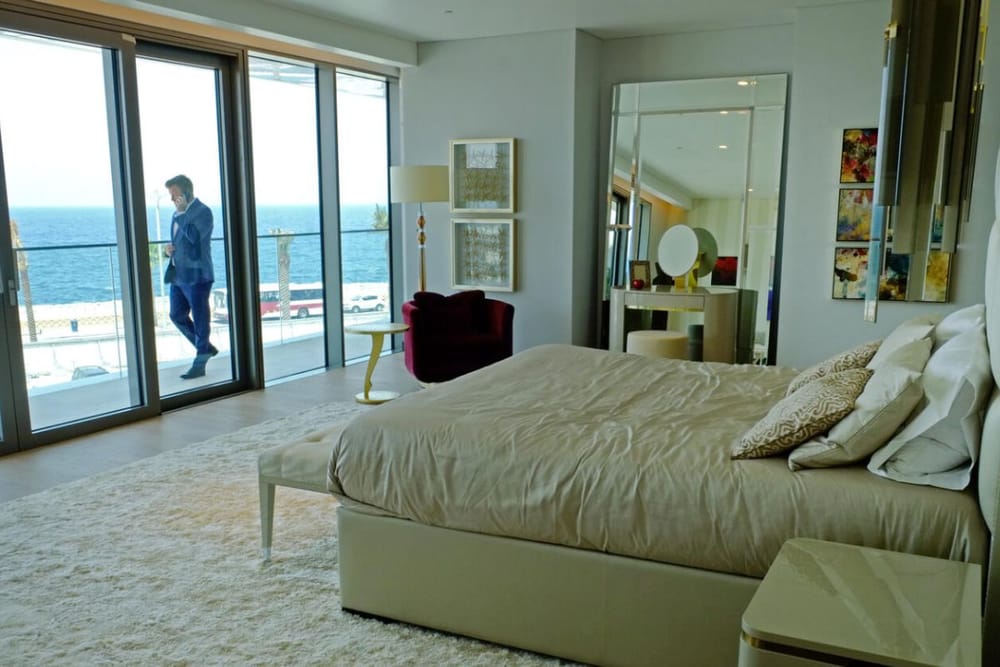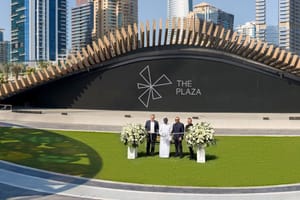There is 'a definite slowdown' with rental gains at 3 per cent, 2 per cent, and 4 per cent for apartments, villas and offices over the three months
Rents in Dubai will continue to rise in 2024 but at a more modest pace, due to undersupply in the market and the migration of foreign professionals and investors into the city.
However, some areas such as Jumeirah Village Circle (JVC) and Tilal Al Ghaf will see a number of handovers next year, giving tenants more options and landlords in the neighbourhoods a run for their money.
“I see rents continuing to rise at a more measured rate than what we have seen over the last two years,"
says Jacob Bramley, leasing manager at Betterhomes.
"There is still an undersupply of property with us receiving large numbers of enquiries and listings stabilising through to the fourth quarter. It is the number of homes that will be handed over next year offering competition on prices that makes me think that price increases may be less punchy."
According to real estate consultancy Asteco, the Dubai rental market has seen a gradual moderation in growth rate in the third quarter.
“Whilst there has been activity in both lower and upper rental rate brackets, certain averages have remained static,”
says Asteco.
There is “a definite slowdown” with rental gains at 3 per cent, 2 per cent, and 4 per cent for apartments, villas and offices over the three months.
"On an annual scale, the changes stood at 18 per cent, 19 per cent and 29 per cent, respectively,”
said Asteco.
Bramley said demand for housing across the city continues to soar, translating into a scarcity of vacant properties. For landlords, this translates into minimal to no long void periods, affirming a robust and thriving rental market.
Where will rents rise faster?
Cherif Sleiman, chief revenue officer, Property Finder, says the commonly preferred areas for apartments are Dubai Marina, Jumeirah Village Circle (JVC), Business Bay, Downtown Dubai, and Jumeirah Lake Towers (JLT). For villas, Dubai Hills Estate, Damac Hills 2, Al Barsha, Jumeirah, and Damac Hills are the most popular areas.
Based on the demand and popularity, it is expected that these areas will command higher rental growth in the coming years.
Property Finder’s November data showed one-bedroom apartments witnessing the highest demand.
Around 36 per cent of people were found to search for one-bedroom apartments, while 30 per cent looked for two-bedroom apartments, and 24 per cent for studios. For villas/townhouses, 42 per cent looked for three bedrooms, and 35 per cent were searching for four-bedroom and larger options. Furnished homes were preferred by 66 per cent of tenants, but 32 per cent wanted unfurnished. For villas/townhouses, 51 per cent looked for unfurnished, and 48 per cent sought furnished listings,”
said Sleiman.
Sleiman sees new projects in previously unexplored neighbourhoods are also expected to bring in more options that help sustain growing demand.
Jacob Bramley sees that new supply in JVC, Cherrywoods, and Tilal Al Ghaf will cause increased competition for landlords in the surrounding areas with extra options for tenants that did not exist previously.
“If increased net migration continues to be higher than the rate that new homes are handed over, this will continue to put upward pressure on rental prices. We may see trends of residents in Dubai deciding to buy compared to renting. Should more of the population decide to buy their home rather than renting long term and if there is a change in real estate being an attractive investment opportunity, this could also dictate rents in 2024,”
he said.
News Source: Khaleej Times









